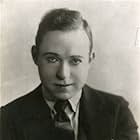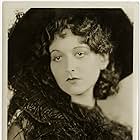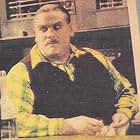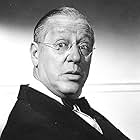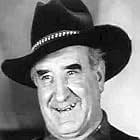Little orphan Harry is separated from his childhood sweetheart. Years later, he finds she's a bearded lady in a circus.Little orphan Harry is separated from his childhood sweetheart. Years later, he finds she's a bearded lady in a circus.Little orphan Harry is separated from his childhood sweetheart. Years later, he finds she's a bearded lady in a circus.
Photos
Irving Bacon
- Picnicker
- (uncredited)
Betsy Ann Hisle
- Harry as a Child
- (uncredited)
Austen Jewell
- Harry Hudson as an Orphan
- (uncredited)
Sam Lufkin
- Post Driver - Circus Employee
- (uncredited)
William McCall
- Picnicker
- (uncredited)
- Director
- Writers
- All cast & crew
- Production, box office & more at IMDbPro
Storyline
Did you know
- TriviaDebut of child actress Mary Ann Jackson.
Featured review
Silent comedy is not everyone's cup of tea, but even among fans it seems that Harry Langdon is an acquired taste: either you like him, or you wonder how in the world anyone could like him. I happen to like him, at least most of the time, and I enjoyed Remember When? a great deal, but that doesn't mean everyone will. It has an oddly structured story that sort of meanders along, and it's not consistently funny, but, like Harry Langdon himself, it's unassuming, quirky and beguiling. Langdon doesn't strain for laughs, not here anyway, and the relaxed tempo is a pleasant surprise, certainly for a Sennett production. It's basically a simple tale of a boy and girl separated for a long time and then reunited, but with some pretty weird twists along the way. When our hero spends much of his time homeless and stealing chickens (to eat, that is), while the girl works as a bearded lady in a circus, we know we're not dealing with conventional Hollywood storytelling.
It's said that the European Surrealists of the '20s, such as Salvador Dali and Man Ray, loved these comedies and found poetry in Mack Sennett's slapstick farces; if that's so, Remember When? may well be the sort of fare they enjoyed. At one point, when Harry is attacked by bees, there is a close-up of the back of his neck as the insects crawl slowly across it that looks like something out of Buñuel's Un Chien Andalou. This close-up is followed by a long-shot of Harry's wild contortions as the bees sting him, and the fact that we are now clearly watching a stuntman who carefully hides his face while doubling for the star comic doesn't matter at all, any more than it matters when W.C. Fields drives his car in front of blatant rear-projection screens in his films, or that the Oliver Hardy who falls off the roof in L&H two-reelers is a obviously stuffed dummy. Even when we're presented with images of pain, humiliation, and disaster, the freewheeling spirit of these comedies prevails and jollies us along. In Langdon's case, the bit with the stunt double is amusing (because it's so unreal?) and just enhances the anything-can-happen mood.
On the other hand, the close-up of the fully bearded leading lady gazing sadly after Harry is startling and disturbing. It's a relief when her beard falls off-- and funny when Harry hurls the furry thing to the ground and stomps it, as if it were a dangerous beast --but even the final clinch between the reunited lovers can't quite 'normalize' what we've just seen. Langdon himself is such an odd, amorphous, grown-up baby-man; seeing him paired off with a bearded lady, even when we're aware of her fakery, causes a touch of queasiness. No wonder some people are put off by Harry Langdon's comedies: there's something unsettling about him and the universe he inhabits, and even the seemingly happy fade-outs can leave us feeling a little uneasy. In some of his films, especially later on, Langdon and his collaborators failed to create a satisfying balance of ingredients and the oddity of his character overwhelmed the comedy, but his better efforts such as Remember When? offer an intriguing mix of humor, pathos, and outright weirdness. There was no one else quite like Harry.
It's said that the European Surrealists of the '20s, such as Salvador Dali and Man Ray, loved these comedies and found poetry in Mack Sennett's slapstick farces; if that's so, Remember When? may well be the sort of fare they enjoyed. At one point, when Harry is attacked by bees, there is a close-up of the back of his neck as the insects crawl slowly across it that looks like something out of Buñuel's Un Chien Andalou. This close-up is followed by a long-shot of Harry's wild contortions as the bees sting him, and the fact that we are now clearly watching a stuntman who carefully hides his face while doubling for the star comic doesn't matter at all, any more than it matters when W.C. Fields drives his car in front of blatant rear-projection screens in his films, or that the Oliver Hardy who falls off the roof in L&H two-reelers is a obviously stuffed dummy. Even when we're presented with images of pain, humiliation, and disaster, the freewheeling spirit of these comedies prevails and jollies us along. In Langdon's case, the bit with the stunt double is amusing (because it's so unreal?) and just enhances the anything-can-happen mood.
On the other hand, the close-up of the fully bearded leading lady gazing sadly after Harry is startling and disturbing. It's a relief when her beard falls off-- and funny when Harry hurls the furry thing to the ground and stomps it, as if it were a dangerous beast --but even the final clinch between the reunited lovers can't quite 'normalize' what we've just seen. Langdon himself is such an odd, amorphous, grown-up baby-man; seeing him paired off with a bearded lady, even when we're aware of her fakery, causes a touch of queasiness. No wonder some people are put off by Harry Langdon's comedies: there's something unsettling about him and the universe he inhabits, and even the seemingly happy fade-outs can leave us feeling a little uneasy. In some of his films, especially later on, Langdon and his collaborators failed to create a satisfying balance of ingredients and the oddity of his character overwhelmed the comedy, but his better efforts such as Remember When? offer an intriguing mix of humor, pathos, and outright weirdness. There was no one else quite like Harry.
Details
- Release date
- Country of origin
- Languages
- Also known as
- Lost & Found
- Filming locations
- Production company
- See more company credits at IMDbPro
- Runtime20 minutes
- Color
- Sound mix
- Aspect ratio
- 1.33 : 1
Contribute to this page
Suggest an edit or add missing content


